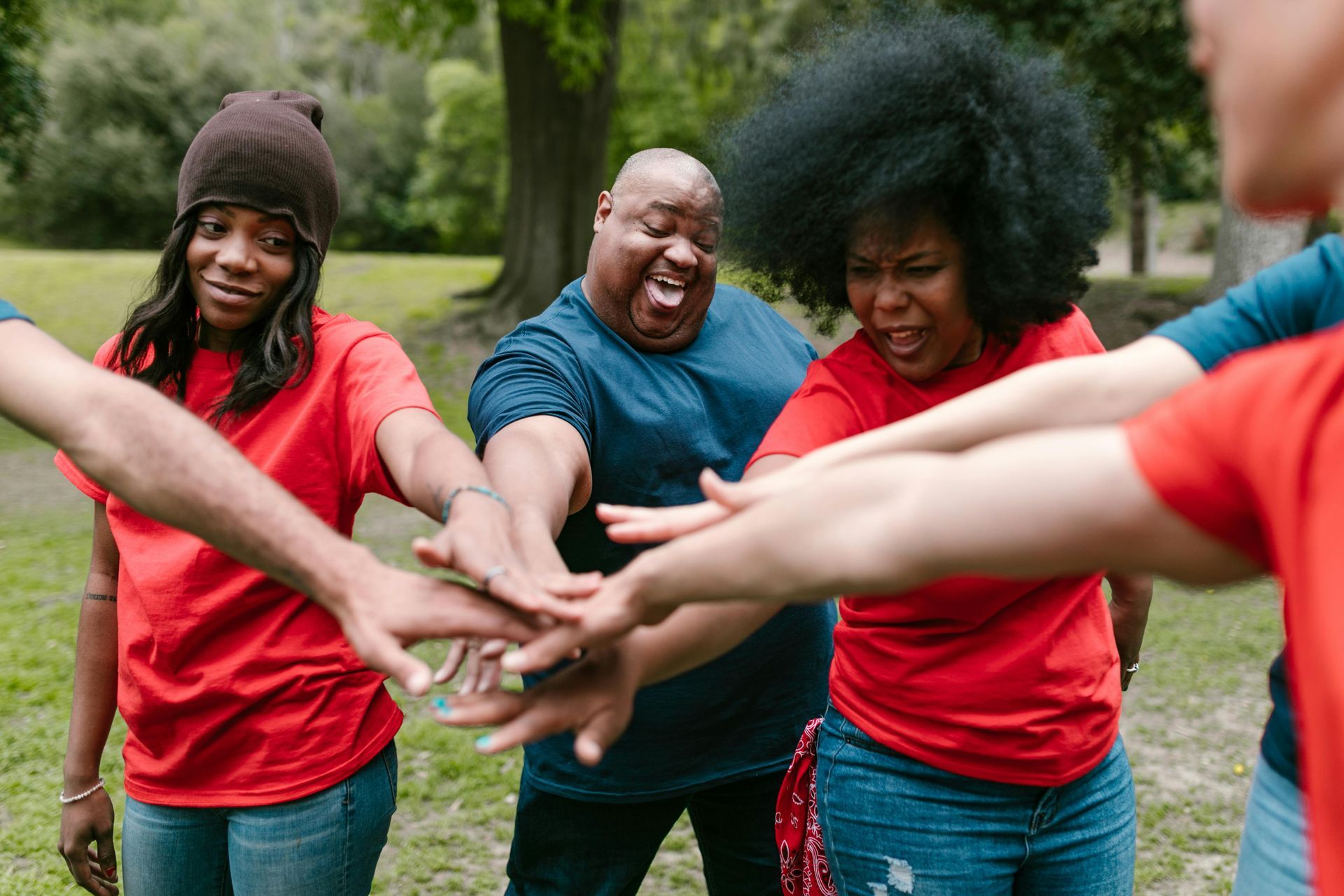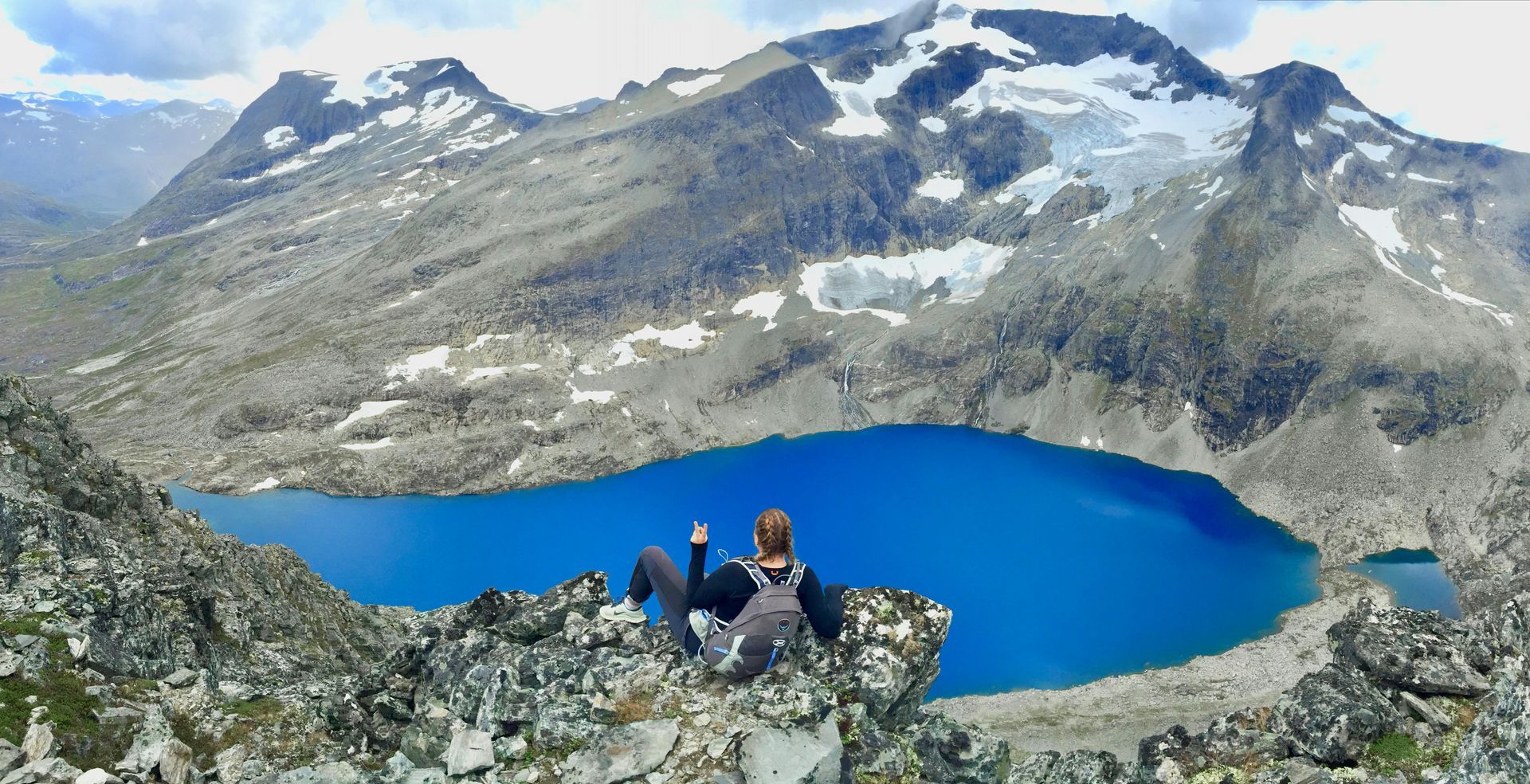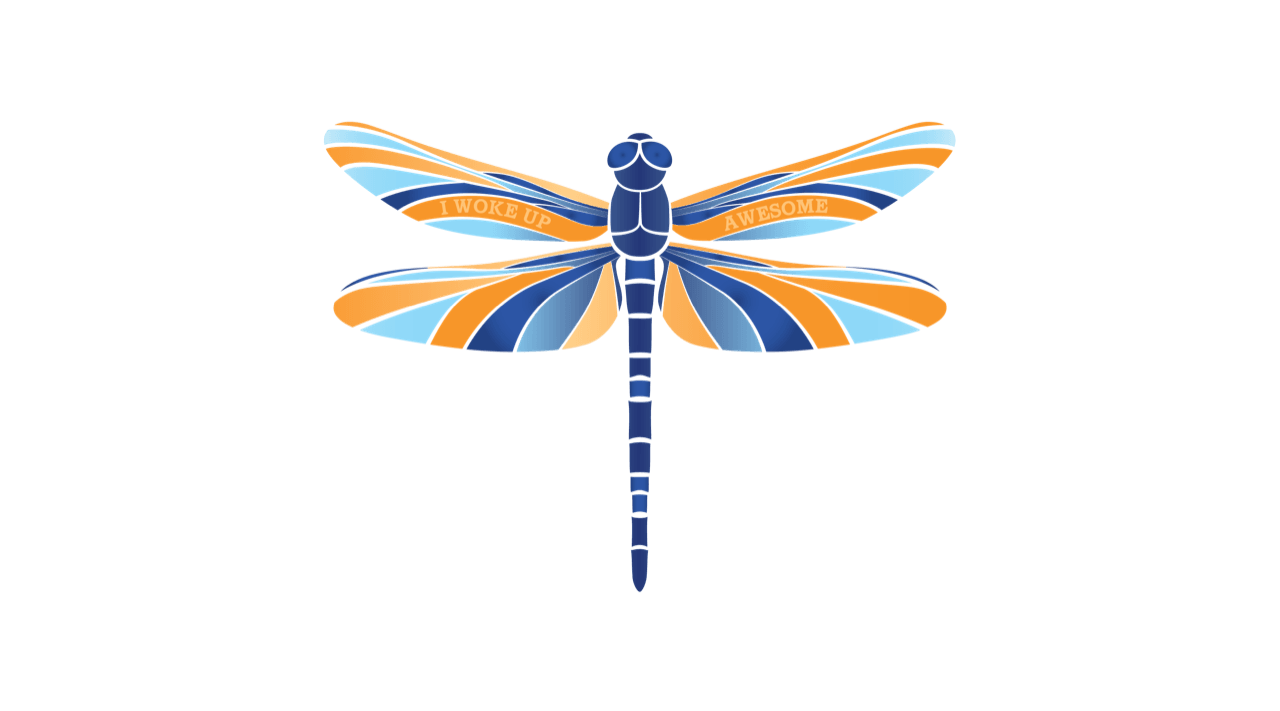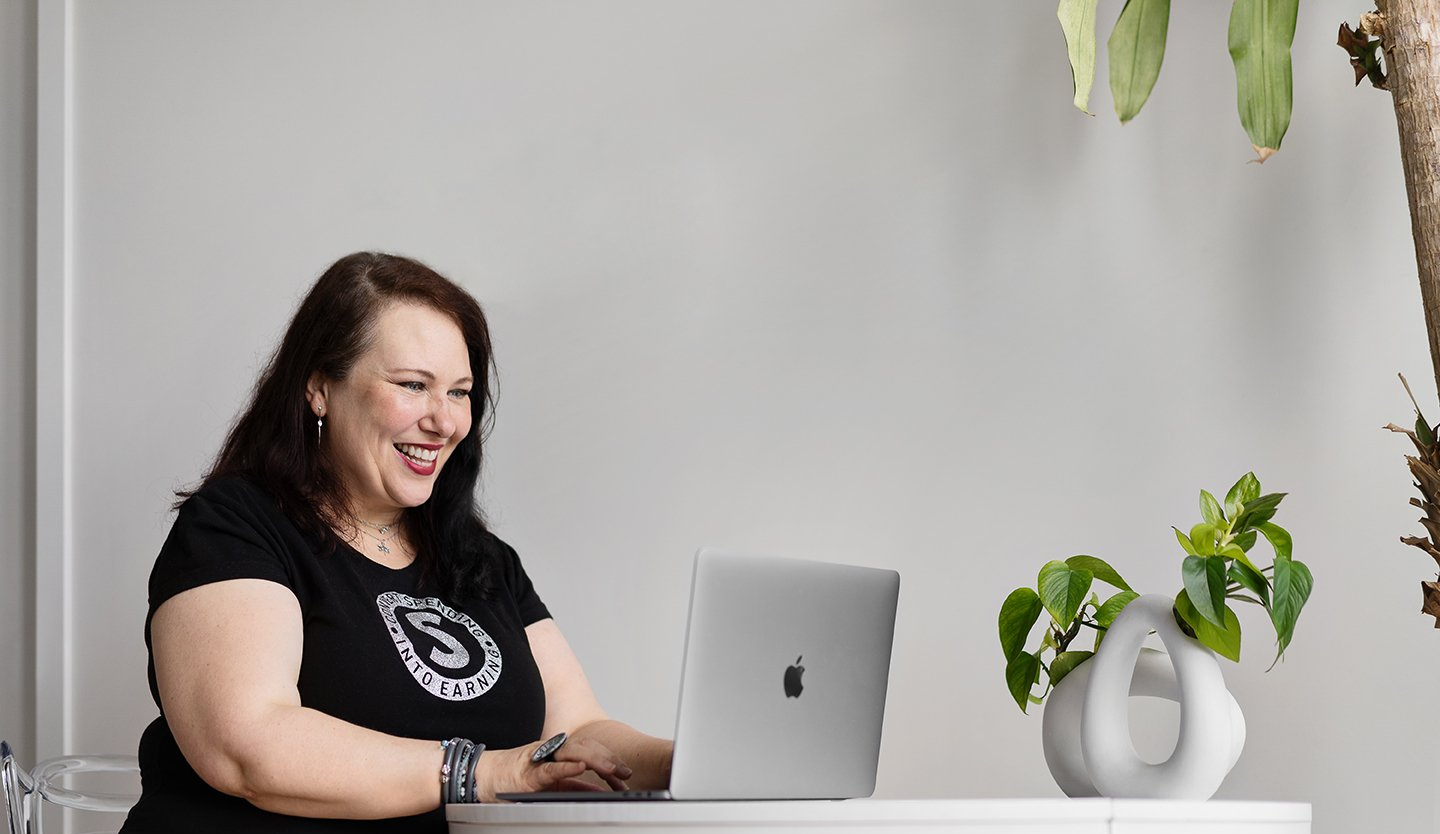This week we meet Trent Bray of Salt Lake City, UT. Trent is a husband of 12 years to a wife who's out of his league, father to 3 amazing kids, and a 3rd generation entrepreneur. Trent has an obsession for cars that started at age 3 and has only grown stronger since. He is so obsessed, all of his kids are named after Lotus cars. Before we got to the plate story, I needed Trent to decipher the plate. We had a great conversation including Trent’s first venture, which began at the age of 6 plus we talked about his love of the Simpsons (does that help you read his plate?) Let’s go find out about B00URN5 and the story behind it. https://trentvbray.com
Connect with Trent:
https://instagram.com/trentvbray
https://instagram.com/hustle.energy
https://hustle.energy/
Trista's PL8STORY Podcast Links
Nominate a plate - https://www.pl8story.com
Meet your host - https://www.iwokeupawesome.com
Subscribe to Trista's PL8STORY Podcast on Apple Podcast (http://bit.ly/itunespl8story), Google Podcast, Spotify or your favorite podcast app and access all published episodes
Episode Transcript available at www.iwokeupawesome.com blog post
Episode Transcript:
B00URN5
[00:00:00]Trista, Host: [00:00:00] Welcome to this week's episode of Trista's PL8STORY (Plate Story) Podcast. I'm Trista Polo from iwokeupawesome.com and I am your host. Each week, we learn the story behind that vanity plate. You know, the one you saw driving down the road... what did it say? What did it mean? Why did they choose it?
Welcome to Trista's PL8STORY Podcast. I'm really excited to have Trent Bray from Salt Lake City, Utah. He has license plate I could not figure out just by looking at it. It's B00URN5, welcome
Trent Bray: [00:00:31] Trent. Thank you first and foremost. Thank you. I appreciate the opportunity to come on and talk about the something that's fun and quirky and you know, it's not the usual thing that I do, so I love it.
I love this opportunity
Trista, Host: [00:00:44] I'm excited to hear the story. Tell me what is B00URN5?
Trent Bray: [00:00:48] Yes. So, we'll what dig in to some of the other fancy plates too I'm sure later, but yeah. yeah, that one started, it actually started with my wife's car.
we bought [00:01:00] her a car and she's like, you know what? I love those license plates where you just sit there and stare at the stoplight and you're trying to figure them out and you can't figure it out. She's like, I want people to not be able to understand my plate like that. That's, you know, I just want a bunch of random letters and numbers.
So there's sitting, you're thinking like, what is this supposed to mean? And then they don't know. I'm like, well, I can give you one that's going to be super random. And I don't even know why it came top of mind. I just am a kind of a Simpsons nerd for at least the original first 10 seasons or so, of the Simpsons.
And I was like, Oh, KWIJIBO, it's seven letters. Nobody's going to know what it means. And it's a really obscure reference in the Simpsons, I would say. Yeah, even Simpsons fans, you know, you wouldn't necessarily know what it is unless you're a real die-hard. And so, she's like, [00:02:00] great, let's put it on.
And it was an interesting experience because she would occasionally get people who would stop her and say, Oh, I love your plate Simpsons. Yeah. It's great. And she's like, wow, you really know what that is. But most of the time people are like, what is that? Why that makes no sense? And. Tell me about it. And so it started with that one.
Well, wait,
you have to tell us what KWIJIBO is before we move on, because most people are not going to get that.
Exactly. So, in only the second episode ever of the Simpsons, you know, the whole family seeing down there playing a game of Scrabble and Bart, you know, the, the kid, if you're not familiar with it, the older son he's... he just wants to be done playing the game. He's bored out of his mind. And so he just lays down all his letters and is like, I won the game, you know? And it happens to spell out [00:03:00] KWIJIBO and it's KWY J I B O and you know, he's all right. Triple letter score or whatever. And I won the game, tries to leave and then grab them.
They're like, wait a second. What is a KWIJIBO. And he basically starts describing Homer, the dad and says, Oh, it's a balding North American ape with a bad temper. And, you know, and, as the gag usually goes in that he, you know, Homer chases after him and tries to strangle him and, They say, Oh, KWIJIBO on the loose!
And so that's, that's where that reference came from.
Trista, Host: [00:03:39] I, my husband has a similar sort of word. It's not a Simpson's reference, but when he was a kid, there was a riddle, what are three words that end in G R Y. So he gets this riddle at school. He goes home and asks his dad and his dad says angry, hungry, And [00:04:00] kangry and they're like what's kangry and he says it's a, it's a board like a wooden board with a nail in it sticking out of it, that's a kangry.
.So Kangry became this very important word to my husband growing up. And it's what he named his first, real sailboat after. And, so I kind of get the idea that, you know, making up a word and then figuring out what it means later.
Trent Bray: [00:04:27] Yeah. well that, I, I appreciate that story.
That that's kind of cool that you've got, you've got that. But yeah, the, the whole, the Simpsons thing, you know, kind of carried on from there. And, I had just gotten a new vehicle and, I was brainstorming plate ideas. And so there's a couple people in my neighborhood who are also fans of the Simpsons and, you know, I just kinda threw it out to them and I was like, Hey, let's let's think of a Simpson's [00:05:00] vanity plate that I can put on this. Cause they, it was kind of funny. They didn't realize the, that my wife's vehicle was my wife's vehicle. cause we, we had taken the plate and transferred it to a new, a different vehicle. And when we moved into the neighborhood and I found them posting my wife's license plate on some random Facebook group, they're like, Oh, I love this license plate.
Can you believe it? I'm like you realize I live like five houses down from you, right? You're like that's yours? No way. And so we kind of create a bond over that, but we threw out a bunch of different options and unfortunately, a lot of other Simpsons fans out there have taken up a lot of the plate options.
but
Well, how long has the Simposons been around,
31 seasons.
Trista, Host: [00:05:48] Come on now, is that, is that like 31 years or, or is there more than one season in a
Trent Bray: [00:05:53] year? I think it was 1989 is when I initially debuted. [00:06:00] So I
Trista, Host: [00:06:01] can't even get my head around that . Well I interrupted you. I just, I couldn't like, cause you're right there. There are so many fans and I'm sure there are so many references in license plates.
Trent Bray: [00:06:12] So the one I, I wanted the most was, Boart, which you, you know, even if you put a zero instead of the, Oh, you know, all the combinations that you can think of, it wouldn't work. And that references, when they go to, itchy and scratchy land and Bart is looking for one of those little vanity license plates, the, with your name on it, and they didn't have Bart, but they had Boart.
And there he's like who in the world names, their kid Boart. And later in the episode, they ended up going into the control room of the itching, scratchy land. And one of the, the calls that they made, they're like there's license or the, the gift shop is that a Boart license plates. We need more Boart license plates.
so that would obviously work really well for a license plate because it's a [00:07:00] license plate reference, but that has been taken them multiple times over. So I eventually, decided on Bourns and that is a reference when they try and drum up tourism in Springfield and they, have, a film festival and they want local people to put their, put their films in a day in the life of Springfield or something like that. And, you know, the local town, billionaire, Monty Burns that nobody really wants to win the prize money because you know, he already has the money. So, he ends up hiring, like, you know, a Steven Spielberg knockoff or something, to direct this, you know, powerful film and all this, and everybody sees right through what he's trying to do.
And so they start booing him at the end of his film. And, you know, his right-hand man Waylen Smithers, you know, is just a yes, man, [00:08:00] and always tries to make him feel better. And he turns to him, he's like, Smithers, are they booing me? He's like, no, no, no. They're saying Bourns. They're cheering you on. And, I've, I've gotten this a surprising amount of people who understood the plate and, you know, have been like, Oh yeah, I love that.
I mean, they talk about, you know, how they related to the Simpsons and growing up with it and whatnot. So it's surprising what that does bring,
Trista, Host: [00:08:32] and commonality that you then have with complete strangers. See, I thought it was like maybe the Bourne movie series. Yeah. I would never have guessed Bourns. but I do love when you make a license plate and have letters that are made by numbers. I always think that's fun. Cause it just shows that you had to have creativity to make it work. Right. So I love that you did that now, do you, [00:09:00] identify with that scene or with Monte burns in any way? Like you're an entrepreneur, so you have. A similar job as he does, but I think you do it a little kinder
Trent Bray: [00:09:11] than he does.
Yeah. Yeah. I, I don't, I don't put people's safety at risk in a nuclear power plant where it's like regulations. What are those?
Trista, Host: [00:09:21] Exactly.
Trent Bray: [00:09:23] So I wouldn't say I directly relate. I said, I, I do feel a little bit kinder, you know, the, so my, my main source of income right now is, flipping houses. And, you know, I, I tried to clarify, like, I'm an ethical house flipper.
Like I won't sell a house that I wouldn't sell to a family member. And that became true. I ended up selling one of the flips to my sister who still lives in that house. And so. it's one of those things. It's like, I'm, I want to be able to sleep at night. I'm not gonna, you know, profit come second.
You've got to have a nice house [00:10:00] first.
Not everybody who flips houses believes that because isn't the margin, the profit margin pretty slim at times. Right. So
how do you, I mean,
Trista, Host: [00:10:11] obviously you do it so that you can sleep at night and so that you can be proud of your business. And I really acknowledge you for that.
How do you make that happen though? Because the margin question.
Yeah, usually, usually it makes, it means making compromises in other areas. So we have a plan where we will go in and say, we're going to do this, this, and this. This is the budget. It's like the budget's got to come from somewhere else. So maybe the yard isn't going to be as nice. We can't transform it as much as we would have liked to have done, or we've had to, you know, we, that's more recent that sticks out in my mind, Trent Bray: [00:10:47] is we had to give up a master bathroom. So, it was an older house that didn't have a master bath. And we had a plan to implement a master bath in there, and we had some other issues that came up [00:11:00] and so the money got diverted to that, and we didn't get a master bath, which ultimately in a way hurts margins as well, because you know, you were banking on charging this much because it had that feature. So you've got to restructure things, but usually there's a way around it. And, you know, even though the margins are usually tight there...you know, more often than not they're in the positive rather than the negative although, the negative has definitely happened.
I think that's true in any business, right? Certain deals don't make you money. Like you thought they would. I, you know, I think that you've made the decision that this is how we run our business.
Trista, Host: [00:11:42] So every conversation, every decision, every challenge comes from there. And so I think that makes you creative in that way. I think if you were just about the profit, then you would make different decisions. And so it's like your core mission and belief for your business [00:12:00] informs every challenge. Every obstacle you come across.
Trent Bray: [00:12:04] Right.
That's awesome. Trista, Host: [00:12:06] and then you have another business that you're starting as well. In addition to that, tell us about that.
Trent Bray: [00:12:12] Yeah. So that is called Hustle Energy. that is the, honestly the thing I spend the most time on, because it's. It's something I'm really passionate about. The, the house flipping has gotten to the point where it's pretty self-sustaining, I've got, you know, people in place where I don't have to worry about the day-to-day stuff, which has been really nice.
So you obviously give up even more margin to do that, but, it allows me to pursue something I'm more passionate about, and that is, The primary goal of hustle energy is to help people who are in a nine to five that have that entrepreneurial spirit, how to get out of that situation and pursue their dreams.
Because I've been that type of person that's stuck in a nine to [00:13:00] five. And I, it suffocates me, you know, it's not for everybody. Absolutely not. I understand entrepreneurship is not for everybody, but, for me, it's like, I. I am in a worse situation. If I can not. Have some control over that aspect of my life, whether it's a side hustle or, you know, my own business or whatever the case may be.
So, you know, it's helping those recognize that and help them escape that nine to five and do something that they are passionate about because all I've got a podcast where I interview entrepreneurs and in general, the recurring theme is people want to make an impact. And it's much more difficult to do that in a typical nine to five scenario.
Yes, there are definitely exceptions to that rule. but people want to make an impact and entrepreneurship is a way that you can make a bigger impact than you could [00:14:00] sitting behind a desk working for somebody else.
Yeah, absolutely. And you come to entrepreneurial-ism honestly. Trista, Host: [00:14:09] and that's actually tied into your history with the Simpsons.
Can you share how this, why was the Simpsons such a big part of your history that your license plates are all a nod to it?
Trent Bray: [00:14:23] Yeah, so I, I like to tell people I was raised by the Simpsons. Just because my
I turned out all right. I think,
yeah. So my, my parents were entrepreneurs and, you know, my, my mom's dad was also an entrepreneur and. So they were always working on their business. I'm the youngest in the family. So that was at a point in the time where their business was the most successful. And so they were trying to create new opportunities and [00:15:00] expand and grow.
And so they were gone a lot. and you know, I had obviously older siblings around and whatnot, but they, they had. Almost a different experience than I did even being a few years apart just in terms of different parenting style and whatnot. My parents just couldn't be there as much as they did with some of the older kids.
And so the one thing that I would do is I've made sure I never missed the Simpsons. You know, they had it in syndication. So I was always, you know, watching it at four o'clock, you know, come on and then come on at six o'clock and it's like, all right, I can, you know, I got to quit doing whatever I'm doing.
You know what friends go home. I don't care. I'm watching the Simpsons, but, The one thing that tied it all together is the, the time that I really spent quality time with my parents was watching the [00:16:00] Simpsons seven o'clock Sunday nights. We were there together as a family, usually all on their bed, watching the Simpsons
and not just any Simpsons, the new one this
week.
Right, right. That's right. Yeah. When that new episode hit, you know, you couldn't just catch it tomorrow on Hulu. You had to sit there and. Be live or else who knows when it would come back on syndication. So,
Trista, Host: [00:16:29] wow. So it had a lot of significance for you. I can see why you say the Simpsons raised you. So that of course makes me have to ask what cause you have kids, right? So hopefully you didn't learn how to be a dad from Homer.
Trent Bray: [00:16:48] I like a lot of things that I've learned in my experience in life is I've learned a lot of what not to do. So. With, with my [00:17:00] parents, you know, they were doing the best that they could no, no judgment there, but, I've learned that I want to be more present with my kids.
I, I'm not going to let the business overtake my life with my kids. So, my, well, my wife helps me with that. Cause sometimes I'll get involved in something that's like, Oh, I gotta get this done. She's like, you know what? We, we need to redirect the focus. So I'm grateful for that, but also learning, you know, not to, strangle my kid, obviously that's something Homer does a lot and that's, I've, I've learned that that will create a more resentful kid because that's what happens in the show.
Right. So, I learned what not to do there. I've learned also not to, Buy your daughter, a horse, on a whim or, try to take care of an elephant. you know, which actually we forgot to mention, I did have, another plate, another Simpson's vanity plate. [00:18:00] Stampy which relates to Bart's elephant that he won from a gag contest, but yes.
Yep. they thought nobody would take, take the elephant and they'd take the cash prize and he demanded the elephant. And so they had the deliver, so, Oh man, that's another Simpson's plate there. So we had three at one point in time that vehicle is now sold, but sorry to jump off topic. Yeah.
. Trista, Host: [00:18:29] so we were talking about your entrepreneurial adventures, your house, flipping your hustle, energy product.
Tell me a little bit about being an entrepreneur. you obviously learned that that's the way to make money from your parents. Right? So what tips did you get from them or did you glean from watching them that have made you more easily able to attain your success?
Trent Bray: [00:18:55] That's a, that's a great question. And, and to me on entrepreneurial-ism [00:19:00] isn't necessarily about the money, because obviously I can, you can still make great money at a regular job. It's more about the the flexibility. so I, I understand I'm going to work more hours, but I can craft those hours around, you know, my daughter's dance recital, or I can craft it around a family trip and, you know, I can still be involved in my kids' lives, but I can still get fulfillment out of creating and building something.
And whether that becomes a huge financial success or not isn't the point. It's the, the fact of building something that's memorable. And I think my parents were that way and that, you know, my, my mom created a compounding pharmacy and the whole why behind it was her dad was suffering from Parkinson's.
And so she was bound and determined. I'm going to help him [00:20:00] with what is ailing him and that's, it was, cause it wasn't, I'm doing this to make money. And so, you know, that that business didn't ultimately end up helping him. She was still trying to get that figured out before he passed, but, she continued the mission on and, Ended up becoming, you know, sourcing, compounding anti-aging and human growth hormone, and things of that nature to help people feel younger and not have those age things that happened to us.
Trista, Host: [00:20:36] So you, you learned some great things from your family. what are some things that you've learned from your own failures? Because as an entrepreneur, I promise. That I would bet money on, you know, very good odds that you've failed at least once, if not many, many times as you've made your way to success.
So what have you learned along your own journey?
Trent Bray: [00:20:58] Yeah. I think I don't have enough [00:21:00] fingers and toes to count posts, but, it's, it's honestly something that is a part of the entrepreneurship experience and it's something that people are talking more about now, but I wouldn't say is regularly talked about.
And so, you know, on my podcast where I interview entrepreneurs, I make sure to ask that question. What was your biggest failure and what did you learn from it? And my failures have always come down to the same thing of giving up too early and not being persistent enough. So when you know, the seeing my parents.
I kind of got a warp to view. I kinda, I kinda got warped view of what entrepreneurship was like, because I saw them at their peak. And so I saw their, you know, when everything was going really well, I didn't see as many of the struggles. And so it's like, Oh, well this is, this is [00:22:00] easy. You know, if it's not working well, That's the wrong thing.
Oh, you know, I just had to abandon the idea and find the idea that worked well. Every successful person, you know, hyper successful person that I've talked to, they have one thing in common. They had a dream, you know, a cause bigger than money or bigger than themselves. They had a cause and they never stopped working towards that cause no matter what odds or adversity got in their way. And so they, the biggest thing that I preach is to have a why behind what you're doing and never give up on it in no matter what comes your way. If your why is big enough, it will help you fight through that. And that's something I've had to learn the hard way many times over.
And, fortunately now I [00:23:00] understand that and you know, I've understood no matter how many times I've wanted to quit on hustle, trying to get a product to market over the last three years. I've got to keep going.
Yeah, you're absolutely right. And you know, your, why is such a key thing?
There's a, you know, the, the phrase, you know, if you love what you do, you'll never work a day in your life. I, I do kind of call BS on that in the way that it is still work. Like for your podcast, you still have to put in the work. It's fun for you to do the work, but you can't just, you know, have fun all the time.
And it's nothing, you know, ever stops that there's still work involved and you still have to craft the time around it. But yeah. It is, it is something that you really have to have the passion behind it, or else you're just going to abandon it at the first sign of distress.
Trista, Host: [00:23:52] Yeah. Now everybody starts somewhere and you started as an entrepreneur.
So how did you first [00:24:00] get started? An entrepreneurial venture takes some capital to get started. So you either have to borrow it, raise it, or I don't know, win the lottery. How did you first fund your entrepreneurial journey when you were just
Trent Bray: [00:24:14] getting started?
So that, that goes back a ways. so I'd say my first journey and entrepreneurship was, selling baseball cards. back when I was like six,
it gets there.
So that, that was, you know, just, I wanted to get more baseball cards. So I had to sell some of 'em to be able to fund the next ones. But, you know, my first real business started when I was 14.
I was just interested in web design and so, or websites in general. And. You know, at the time there's, there's no YouTube, there's no real resources [00:25:00] out there. you know, I was 14, so I didn't, I couldn't go drive to a bookstore to get a book on how to design websites. So I just spent a lot of my time going to websites, right.
Click view source as, and then reverse engineering a website. And so, you know, at the time it was obviously a lot easier. So it was just learning HTML. And so, I mean,
Trista, Host: [00:25:23] but Holy crap,
Trent Bray: [00:25:25] yes.
Fact that you did that, I'm extremely impressed right now.
Well, I'm glad to impress somebody, but
Trista, Host: [00:25:35] because I know what it looks like when you right click.
Trent Bray: [00:25:37] And I just spent the time and said, okay, well, look kid starts with this tag and it ends with this tag and then let's work our way into the middle and figure out what these things mean. And, It was something that was really interesting to me.
I really resonated with it for whatever reason. And so I'd figured out how to make websites and I didn't have any programs or anything. So I just designed them [00:26:00] in notepad, on my computer and just typing the code in. And, so I ended up starting to offer websites to family members and then friends and then local companies.
And so that was really exciting to me. And that was, I think the easiest way to raised capital is to start a service related business. Cause I was providing the service. It required nothing more than the computer that I had. And so
Trista, Host: [00:26:32] overhead, no employees, no financial investment into equipment. Yeah.
That's
right, right. So that, that was something that's like, okay, well, again, it worked pretty easily, so ITrent Bray: [00:26:46] kind of rested on my laurels on that. I ended up getting some vending machines. it's
Trista, Host: [00:26:51] exciting. That's very entrepreneurial having vending machines.
Trent Bray: [00:26:55] That's like
the sort of thing. Every time I would get something from a vending machine, I would think [00:27:00] somebody is making money right now, but who even knows how that works.
So this it's kind of a sad story, but, it was a, was in the office complex. my mom was at, and, you know, she'd heard through the grapevine that this guy was selling his vending machines.
and it was a blind man who his wife had become sick and couldn't help him anymore. to, you know, we stock the vending machines and being blind. He was able to do that very easily. So he said, I need to sell these. And so I was able to, purchase those and. did that for a number of years, just kept the couple of vending machines, you know, I thought about expanding it and whatnot, and never ended up doing that.
But, it was, it was a fun experience. you know, it required work, but I mean, honestly it was [00:28:00] just making sure to shop the sales, and Costco was a great resource to stuff. It was snacks. Like, I mean, you could just, it was kind of a, what you'd call now, retail arbitrage, where it was like, Oh, I'm finding it at this store for this amount.
And then I'm reselling it here. Obviously this was pre Amazon and eBay. Yeah. Amazon was just selling books at this point in time. But, anyway, it was. It was a good experience. and fortunately didn't require a whole lot of overhead. but I then tried to get into some businesses that required more overhead.
And that's where I struggled to find the right opportunity to, you know, have somebody invest or, you know, find the money. But of course, you know, I'm 16 at this point in time. So it's, it's a little different, but, obviously now there, there are a lot of options. [00:29:00] I think. One thing I've learned is you can always take it back several steps to something that doesn't require a lot of money. If you have that why ...that goal of what you're after there's ways to do it without having the perfect product right out of the gate, you can build up your reputation, build up your connection, and, you know, 10 times through those connections, you may find somebody who's the perfect partner.
I think that, talking with people. It's like, what's the one thing that you would do differently if you start again and more often than not. It's. Hire sooner or include a partner sooner because a lot of people try and take things on themselves. And it's always great to have an outside perspective. When you think, you know, this is the only path forward, we need a million dollars for this product or else the business isn't going to survive.
Somebody can provide you with an outside perspective and potentially [00:30:00] funding if that's what is actually needed.
Trista, Host: [00:30:02] tell me about your podcast a little bit.
Trent Bray: [00:30:04] Yeah, so it is it's called Hustle the Day. it's, like I said, typically interview entrepreneurs or those that are in the nine to five, trying to escape it, or those who have done that already. and, it's available on all the podcasts platforms and YouTube and, you know, it's pretty much anywhere you look for a podcast, you'll find it there.
Great. Trista, Host: [00:30:29] I'll definitely be checking out your podcast, because it sounds great. So I have been so just loving our conversation, a real life Simpson's child and you, you still made it, you still are able to make enough money to raise your kids. And you know, it sounds like you have a great life and I know you're married and happily that there.
So, before we end, I always like to turn the tables. And see what question you have for me so that you can [00:31:00] put me on the spot for once now that I had been doing that to you for awhile.
Perfect. Trent Bray: [00:31:06] so. Obviously you, you know, the most common question you probably get is, you know, what, what started this?
And you've got your episode that, you know, explains all that. So, definitely check that out for, for the background on what you do, but, or how this started. But, since we're both connected through the podcasting world, if you were to start your podcast all over again, what would you do differently?
That's a very good question. Something I've learned in hindsight, I thought I knew everything there was to know about starting a podcast because I've had two other podcasts in the past. So I had a mic already. I already had the equipment to edit the sound. I thought I knew everything and I didn't inspect or get curious, which I think is a really important entrepreneurial tip too.
Trista, Host: [00:31:55] Stay curious, stay learning. Don't assume you've been there before, because you'll [00:32:00] miss something. So that's what I did. I jumped right in. I had this great idea. I wanted to get rolling with it ASAP. Since then. I've seen some places that I really could have taken advantage of. For example, creating a community before I started the episode. to actually take a podcasting course, to see what I don't know.
Which I think would have splashed me onto the podcast world more effectively. And it would have been easier to start with a larger audience and grow it from there. So I don't mind the audience I have it's growing organically, but I think there are so many people who, if they knew about the podcast, they'd be listening, but because they don't, they aren't.
So I think that that's, what I would do is I would get a little more education instead of assuming I already know everything. I don't have anything new to learn, which is a great piece of advice in every area of my life.
[00:33:00] Trent Bray: [00:33:00] I would agree with that sentiment completely because I, I learned so much from other podcasters. It's like, all, this is a resource. This is great. This is great. It's like, why was I not doing that earlier? But, yeah. You've got to thank Eric Allen for posting, on his social media about, your podcast, because that's how I stumbled upon it, because
I don't
think I knew that that's so exciting.
Absolutely. And so, you know, it's about building that community and, putting it out there and letting people find you because yeah, it's a great, great concept and I love your podcast, so.
Trista, Host: [00:33:34] Oh, good. Thank you. And thank you to Eric for connecting the two of us. Awesome. Well, thank you so much, Trent, for being on, I really appreciate all that you shared and including, you know, your entrepreneurial tips, but also like your come uppance as a kid and all the ways that it impacted and inspired you to be who you are today. It was great to learn your story.
Thank
Trent Bray: [00:33:58] you. I appreciate the opportunity.
[00:34:00] Trista, Host: [00:34:00] Yes, absolutely. Have a great day.
Trent Bray: [00:34:03] You as well.
Trista, Host: [00:34:05] Thank you for joining us for this week's episode of Trista's PL8STORY podcast. Please subscribe to Trista's PL8STORY podcast to get the story behind all those vanity plates, driving with you on the road. And if you would like to nominate the owner of a license plate, including you... Or visit any of our partners and sponsors come and see us www.pl8story.com. That's P L number eight story.com and give us the details.
If you enjoyed this episode, please drop a review and give us a share. I'm Trista Polo wishing you well on the road to your next adventure.
I Woke Up Awesome Blog











